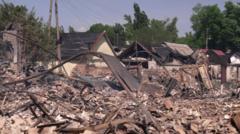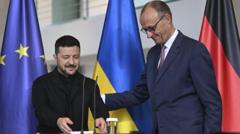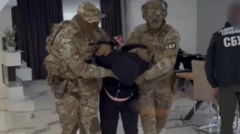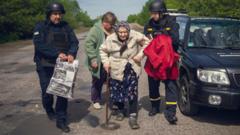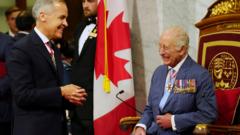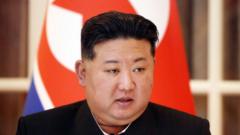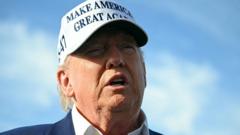Amid a burgeoning crisis in Ukraine, Russian military actions intensify while U.S. diplomatic efforts diminish, leading to tragic consequences for civilians.
# Escalation in Ukraine: Russia's Ongoing Attacks Amid U.S. Diplomatic Retreat

# Escalation in Ukraine: Russia's Ongoing Attacks Amid U.S. Diplomatic Retreat
Deepening conflict as Russian offensives rise; U.S. retreat complicates peace efforts.
In recent days, the conflict between Russia and Ukraine has escalated dramatically, with extensive aerial assaults on cities throughout Ukraine. This surge in military action coincides with what appears to be a withdrawal by President Trump from diplomatic engagements aimed at resolving the enduring war.
During the early hours of Monday, Ukrainian skies were filled with swarms of Russian drones and bombs as a fierce barrage targeted multiple Ukrainian cities for the third consecutive night. Ukrainian authorities have reported that the relentless attacks have resulted in at least 30 fatalities and 163 injuries during this period.
This spike in violence follows a recent telephone conversation between President Trump and Russian President Vladimir Putin, during which reports suggest Trump expressed an interest in stepping back from negotiations for a ceasefire. Analysts emphasize that Russia is not only aware of the dwindling military support from the U.S. but is also leveraging this moment to assert its military advantage over Ukraine.
Phillips O’Brien, a strategic studies professor at the University of St. Andrews, stated, “For the last three years, U.S. policies have significantly shaped the war, but the current trend indicates that the U.S. is paring down vital aid to Ukraine, a signal that is well-understood by Russian forces.”
President Trump has openly criticized the "unprovoked" attacks from Russia, expressing confusion over Putin's aggressive posture: “I’ve known him for years and always had a good relationship with him. This escalation of violence is troubling to me.”
As the situation develops, stakeholders worldwide remain anxious about the implications of reduced U.S. involvement in the region and the potential for further humanitarian crises amid continued Russian aggression.
During the early hours of Monday, Ukrainian skies were filled with swarms of Russian drones and bombs as a fierce barrage targeted multiple Ukrainian cities for the third consecutive night. Ukrainian authorities have reported that the relentless attacks have resulted in at least 30 fatalities and 163 injuries during this period.
This spike in violence follows a recent telephone conversation between President Trump and Russian President Vladimir Putin, during which reports suggest Trump expressed an interest in stepping back from negotiations for a ceasefire. Analysts emphasize that Russia is not only aware of the dwindling military support from the U.S. but is also leveraging this moment to assert its military advantage over Ukraine.
Phillips O’Brien, a strategic studies professor at the University of St. Andrews, stated, “For the last three years, U.S. policies have significantly shaped the war, but the current trend indicates that the U.S. is paring down vital aid to Ukraine, a signal that is well-understood by Russian forces.”
President Trump has openly criticized the "unprovoked" attacks from Russia, expressing confusion over Putin's aggressive posture: “I’ve known him for years and always had a good relationship with him. This escalation of violence is troubling to me.”
As the situation develops, stakeholders worldwide remain anxious about the implications of reduced U.S. involvement in the region and the potential for further humanitarian crises amid continued Russian aggression.

